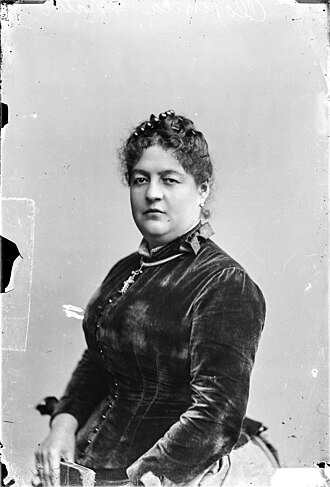Discover Your Roots
SIGN UPDiscover Your Roots
SIGN UPClorinda is a female name of English origin, meaning "Combination of Clora and -inda." It is a name with historical significance and cultural references, with notable individuals such as Italian opera contralto Clorinda Corradi and Peruvian writer Clorinda Matto de Turner bearing the name. In the arts, Clorinda is known as a character in the epic poem Jerusalem Delivered by Torquato Tasso and has been depicted in various art forms. The name is also associated with vessels, including French frigates, and other references such as a brachiopod genus and an asteroid. Additionally, Clorinda is the name of a city in Argentina. The name carries a sense of strength and artistry, with a rich cultural and historical legacy.

Clorinda Matto de Turner (11 November 1852 – 25 October 1909) was a renowned Peruvian writer who lived during the early years of Latin American independence. Born and raised in Cuzco, Peru, she gained recognition for her controversial writings that sparked discussions about the treatment of indigenous people and the rights of women. Matto de Turner married an Englishman, Dr. Turner, and moved to Tinta, where she became deeply involved in indigenous culture, which greatly influenced her literary works. She founded a magazine and wrote novels that portrayed indigenous people in a positive light, challenging the prevailing societal views. Despite facing excommunication by the Archbishop due to her controversial writings, Matto de Turner continued to advocate for social justice and better education for women. Her most famous novel, "Aves Sin Nido" (Birds Without a Nest), addressed sensitive topics such as interracial relationships and the immorality of priests, which stirred significant controversy in Latin American society. Forced into exile in Argentina, she remained dedicated to her literary activities and continued to produce notable works. Matto de Turner's legacy as a trailblazing writer and advocate for social change continues to inspire and resonate with audiences worldwide.

Clorinda Low Lucas, born Elizabeth Jessemine Kauikeolani Low, was a pioneering American Native Hawaiian social worker. Born in Honolulu in 1895, she was raised during a time when Native Hawaiian culture was not widely embraced. Despite this, she became one of the earliest trained social workers in Hawaii. Lucas graduated from Smith College and later earned a master's degree in social work from the New York School of Social Work. She married Charles "Charlie" Williams Lucas, a Niu Valley dairy rancher, and had a daughter named Laura Kalaukapu. Lucas dedicated her career to serving underserved communities, particularly children. She worked at the Hawaiian Humane Society and later became the chief of the social work division of the social security department, playing a key role in establishing social welfare programs during the Great Depression. She also led the first school social work program in Hawaii. Despite criticisms for de-emphasizing Hawaiian culture, Lucas's impact on social work in Hawaii was substantial. She passed away in 1986, leaving behind a legacy of advocacy and reform in social welfare.

Clorinda S. Minor (May 11, 1806 – November 6, 1855) was an influential American figure from Philadelphia known for her ventures in Palestine during the 19th century. Encouraged by William Miller, she embarked on a journey to Palestine after Miller's prophecy failed. Minor exhibited a deep interest in supporting the experimental farm established by the Finn family at Artas. She settled at Mount Hope on the outskirts of Jaffa, where she joined a group that included Germans from Elberfeld and worked on a farm owned by Rabbi Yehuda HaLevy. Minor was also known for her literary work, having published the book "Meshullam! or, Tidings From Jerusalem" in 1850. Her dedication to assisting and converting Jews to Christianity in Palestine is noteworthy, as she emphasized the importance of providing work for the Jewish community. Minor's legacy is documented in various literary and historical sources, including works such as "Divine Expectations: An American Woman in 19th-Century Palestine" by Barbara Kreiger. Her impact on the American presence in Palestine during the 19th century remains a subject of historical interest and exploration.


All images displayed on this page are sourced from Wikipedia or Wikimedia Commons.We use these images under their respective Creative Commons or public domain licenses. Wherever applicable, author attributions and license information are provided. If you believe an image is used incorrectly or outside its license terms, please contact us so that we can review and correct the issue.